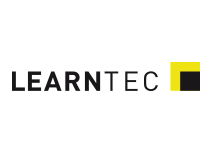"We will become better at navigating our way to knowledge"
Elliott Masie is an e-learning pioneer, Broadway producer and an internationally renowned futurologist. The US American will be keynote speaker at this year's 30th anniversary edition of LEARNTEC.

In this interview, he reveals how much potential he sees in AI chatbots, how our way of learning has changed over the course of the past 30 years, and why Mark Zuckerberg constitutes a problem for the metaverse.
Everyone is talking about ChatGPT. What do you find most interesting about the hype around AI chatbots?
What I find interesting is that the technology behind AI is actually not new. Our public focus on it is new. Whether we are talking about Google or China's Baidu, all search engines are working with AI. However, ChatGPT revealed the enormous possibilities of AI to the public offering people a tempting and intriguing technology. And remember, this technology is only five years old. This makes the potential that is unfolding already all the more exciting.
I also find it very exciting that we have moved from single question – single answer to a much more personalized dialogue with search engines. I could go to Google and say, "Tell me about this topic." Google would then provide a short paragraph. I could then continue searching with that information. But now I can say, "Tell me more. Translate that into German. Show me a picture." Consequently, our interaction with search engines transforms into a personal and sizable conversation.
LEARNTEC has been around since 1992, just celebrating its 30th anniversary. You have also been an expert in e-learning since the 1990s. What development has surprised you the most since then?
For a long time, learning spaces resembled houses of worship with very structured curricula and controlled from the top. That has changed a lot. I remember working with a large software company for a training program in the 1990s. The textbook had hundreds of pages and they went through it page by page for 14 days. Today, the company trains its employees by giving them projects that include collaboration. Documentation is more interactive. Learners have become more diverse. Now learning is no longer about curriculum design or the choice of the learning management system but more about how we can use all these different technologies and learning strategies in ways that are shorter, more targeted, and personalized.
Another topic at LEARNTEC is the metaverse. Recent studies have shown that the metaverse is not yet a priority for German companies. What is your view on the metaverse?
It is wise of the Germans not to rely too much on the metaverse (laughs). I have three issues with the metaverse. First, most people do not want to wear VR goggles for more than a few minutes at work. So the next version of what we call the metaverse will not have to be goggle based in order for it to be successful. I could well imagine holographic projections or something similar replacing the goggles at some point. My second issue is Mark Zuckerberg. He is shaping the metaverse more than anyone else. In my opinion, this is a problem because many corporations do not wish to tie themselves into his brand and his ego. The third issue: The metaverse has not captured the imagination of the youngest. They are more interested in TikTok or Instagram right now. But without the younger generations technology has no chance of success. I think that at some point there will be a different kind of metaverse with a different name in which we use our screens and smartphones in a more three-dimensional way.
How would you assess the current state of e-learning in Germany?
German companies are applying e-learning in a very structured way. At a conference, the HR manager of a German car manufacturer told me that they train the workforce on site with a combination of e-learning, VR and analogue materials. I was impressed by that. E-learning in Germany is mainly used in vocational training and less in schools which is different in the US. I would also say that universities in Germany have done a good job in introducing and expanding e-learning. Now it will be interesting to see if they also venture a step further and integrate augmented simulations and the like.
Do you think people learn differently today than they used to?
Most definitely. New technologies, the pandemic, economic and vocational uncertainty: all these things combined make people want to learn what they really need to know quicker. They do not want to learn anything they do not currently need. Instead, they would rather know where to look things up when they need it. They prefer more conversation and collaboration and they aspire to shape their own teaching.
People used to learn something new at the beginning of their careers – or once a year at best. Recently someone from a German manufacturing company wrote to me: "We want to make sure our employees can learn something every day." That is a much more contemporary approach. We will see interesting changes in the use of AI. Right now, there are still companies and schools that strictly reject AI. This reminds me of the times when schools wanted to ban calculators. It did not work because too many people used them. It will be the same for AI.
What does the future of learning look like? What would we talk about in an interview 30 years from now?
I think we would know before the interview what the other person is good at and what our counterpart's interests are. The way I envision it is that at the click of a button, we will be able to get a comprehensive picture of people we are interacting with. We will have new opportunities to find out what special skills someone has and who can support us and how to develop our skills.
In addition – and this is a bit more controversial – I do not think that we will still have to memorize so many things. Just like today, I simply type in the address of my destination and my GPS will show me the way. I think we will become better at navigating our way to knowledge rather than having to memorize that knowledge.
And finally, we might not even call it “learning” anymore. New skills will evolve from the interplay of knowledge, illustrations, exercises, and collaboration, but it will not necessarily feel like learning – just like today, when I watch something interesting on TV I do not think of it as learning. Nevertheless, learning will always be there even though we may understand it differently in 30 years.


